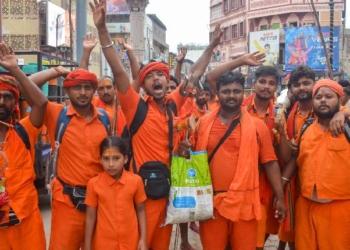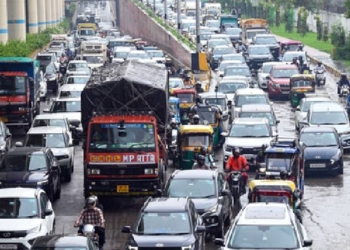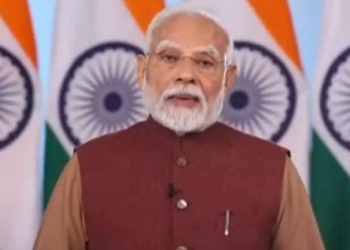New Delhi: The Economic Survey for 2022-23, which was laid in Parliament by Finance Minister Nirmala Sitharaman on Tuesday, has underlined that India’s growth has been inclusive as it has focussed on job creation.
India is the third-largest economy in the world in public-private partnership (PPP) terms and the fifth-largest in market exchange rates. “As expected of a nation of this size, the Indian economy in FY23 has nearly recouped what was lost, renewed what had paused, and re-energised what had slowed during the pandemic and since the conflict in Europe,” the survey noted.
“Both official and unofficial sources confirm that employment levels have risen in the current financial year, as the Periodic Labour Force Survey (PLFS) shows that the urban unemployment rate for people aged 15 years and above declined from 9.8 per cent in the quarter ending September 2021 to 7.2 per cent a year later (quarter ending September 2022). This is accompanied by an improvement in the labour force participation rate (LFPR) as well, confirming the emergence of the economy out of the pandemic-induced slowdown early in 2022-23,” the survey noted in its chapter on India’s inclusive growth.
In 2020-21, the Government had announced the emergency credit line guarantee scheme (ECLGS), which succeeded in shielding micro, small and medium enterprises from financial distress, the document said.
Citing a recent CIBIL report, the economic survey said that ECLGS has supported MSMEs in facing the Covid shock, with 83 per cent of the borrowers that availed of the ECLGS being micro-enterprises. Among these micro units, more than half had an overall exposure of less than Rs 10 lakh.
Furthermore, the CIBIL data also shows that ECLGS borrowers had lower non-performing asset rates than enterprises that were eligible for ECLGS but did not avail of it. Further, the GST paid by MSMEs after declining in 2020-21 has been rising since and now has crossed the pre-pandemic level of FY20, reflecting the financial resilience of small businesses and the effectiveness of the pre-emptive government intervention targeted towards MSMEs, the survey noted.
Moreover, MGNREGA has been rapidly creating more assets in respect of “Works on individual’s land” than in any other category. In addition, schemes like PM-KISAN, which benefits households covering half the rural population, and PM Garib Kalyan Anna Yojana have significantly contributed to lessening impoverishment in the country, it outlined.
Citing a UNDP report of July 2022, the survey stated that the recent inflationary episode in India would have a low poverty impact due to well-targeted support. In addition, the National Family Health Survey (NFHS) in India shows improved rural welfare indicators from 2015-16 to 2019-20, covering aspects like gender, fertility rate, household amenities, and women empowerment.
“So far, India has reinforced the country’s belief in its economic resilience as it has withstood the challenge of mitigating external imbalances caused by the Russia-Ukraine conflict without losing growth momentum in the process. India’s stock markets had a positive return in CY22, unfazed by withdrawals by foreign portfolio investors. India’s inflation rate did not creep too far above its tolerance range compared to several advanced nations and regions,” the survey said.
(IANS)














